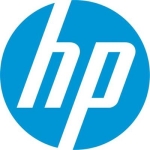Most of my clients use Microsoft Defender for Endpoint for attack and threat prevention. I always look at the alert page to get alert details. This solution is also used for EDR (endpoint detection and response). We also use it for web content filtering and for completely automated investigations.
What I found most valuable in Microsoft Defender for Endpoint is its vulnerability dashboard. It's fantastic for my clients and I.
In my experience, I only need the client dashboard in the cloud and in the server. For my dashboards in the cloud, I can set up and see everything. I can check alerts, e.g. I'm alerted when something happens, but when my client is offline, and I want to look for something offline, e.g. directly on his computer, I'm not able to see everything. My client's computer needs to be online for me to be able to see the information I need, and this is an area for improvement.
There should be integration of this solution with client dashboards. I need to see some of the dashboards directly from the computers of my clients, rather than just their cloud dashboards. If the dashboard is only viewable from the cloud, I will not be able to view it when the computer is offline.
What I'd like to see in the next release of Microsoft Defender for Endpoint is a better UI. Another suggestion to improve this solution is having endpoint protection offline, e.g. I'll set up a file on Microsoft Defender for Endpoint and all the network, so my ISP goes in and out through the Defender server. Rather than just being on cloud, they must make an appliance for on-premises deployment.
I started using Microsoft Defender for Endpoint six months ago, so I've been using it for half a year.
Microsoft Defender for Endpoint is a very stable solution.
Microsoft Defender for Endpoint is a scalable solution.
I have no complaints about the technical support for Microsoft Defender for Endpoint.
The initial setup for Microsoft Defender for Endpoint was super easy for me.
Implementing this solution is done in-house. I'm the one implementing it. I can set it up for multiple clients weekly, e.g. five clients a week.
I'm using Microsoft Defender for Endpoint for myself and for my clients. I'm a partner of Microsoft.
I'm the one in charge of the deployment and maintenance of this solution.
My advice to someone planning to use Microsoft Defender for Endpoint is that it's super easy to understand, whether you have no prior knowledge of it, or you want to learn more about it. You can also learn more about security, particularly information security.
My rating for Microsoft Defender for Endpoint is nine out of ten.














